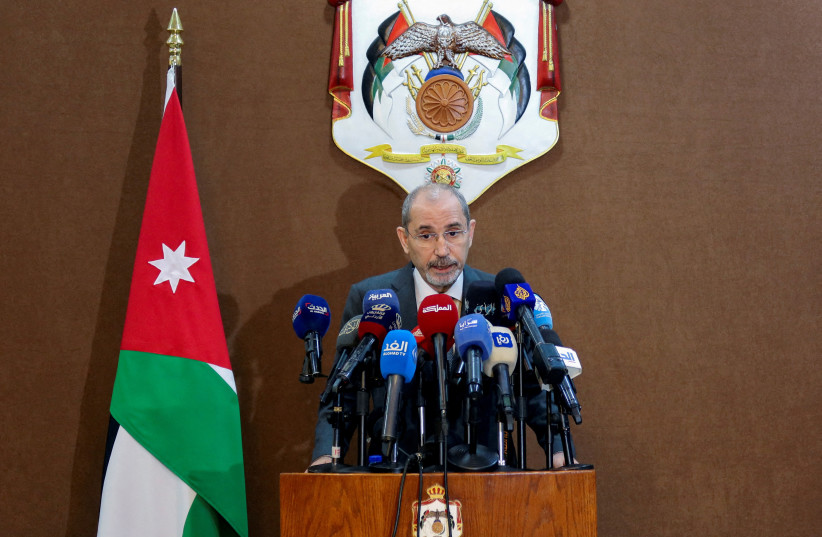The Kingdom of Jordan hosted foreign ministers from several important states in the region, under the umbrella process of increasing Syria’s reintegration. Jordan’s state media Petra reported that “a ministerial consultative meeting, hosted by Jordan and attended by the foreign ministers of Saudi Arabia, Syria, Iraq and Egypt kicked off on Monday.” The report pointed out that this is a “follow-up to the consultative meeting of the Gulf Cooperation Council (GCC) member countries, which was held on April 14 in Jeddah at Saudi Arabia’s invitation and was also attended by Jordan, Iraq and Egypt.”
The idea is to support a political solution for Syria; not only supporting the regime as the conflict there relatively winds down while showcasing how Arab states want Syrian normalization to progress. Saudi Arabia has led with the UAE and Egypt, and Jordan is also a key player due to its shared border with Syria. At one time, it hosted a million Syrian refugees. Iraq is in the same position. Iranian President Ebrahim Raisi will visit Syria soon; Iran wants its Damascus ally to have strong relations in the region – as long as Tehran benefits.
According to Petra, Jordan’s “Deputy Prime Minister [&] Foreign Minister Ayman Safadi met with his Syrian counterpart Faisal Mekdad prior to a ministerial consultative meeting.” The two officials addressed efforts made to establish an Arab leadership role for a political solution to the Syrian crisis based on the Jordanian initiative and other Arab alternatives.
The report added that “talks during the meeting tackled a wide range of bilateral concerns, including border security, refugees, water and the fight against drug smuggling.” Smuggling is extremely relevant because militias in Syria export Captogan around the region. Some of the groups are backed by Iran and are part of a billion-dollar industry of illegal drug trade in the region. Some of the drugs end up in the Gulf.

The meetings came just as Jordan’s Interior Minister Mazen Faraya and Norwegian Justice Minister Emilie Enger met and discussed ways to enhance cooperation on the Syrian refugee crisis. “Faraya underscored Norway’s support for Jordan to deal with the Syrian refugee crisis, including assistance for refugee camps and host communities’ infrastructure and national development programs and projects,” Petra reported.
Jordan needs increased funding for the refugees; only 6% of the necessary funding has been pledged, the report said. “Jordan will work hard to provide security, education, health care, and a decent life for refugees, pending a political solution in Syria,” the report added.
Jordan is positioning itself as a key regional leader
In hosting the meetings, Jordan is positioning itself as a key regional leader, recently hosting discussions with the US about joint cooperation and coordination on various military, operational, training and logistical fields.
According to Jordanian Al-Ghad media, the Kingdom views the return of Syria to the Arab League as a decision for the League. It is not clear what that means because the meeting in Amman seems to show support for normalizing ties with Damascus in the region.
The final statement of the meeting with the Syrians included a long statement by the ministers of Jordan, Saudi Arabia, Egypt and Iraq that “affirmed the priority of ending the crisis [in Syria] and all that it caused in terms of killing, destruction and destruction, and the suffering of the brotherly Syrian people… and negative repercussions regionally and internationally, through a political solution that preserves Syria’s unity, cohesion and sovereignty, meets the aspirations of its people, rids it of terrorism, and contributes to strengthening suitable conditions for the voluntary and safe return of refugees, leading to the exit of all illegal foreign forces from it, in a manner that achieves national reconciliation, and restores Syria’s security, stability, health and role [in the region,” according to the report.
The goal is to integrate Syria into the region and address the humanitarian, security and political situation. The countries agreed to deliver humanitarian aid, to back international efforts in Syria and “to support Syria and its institutions in any legitimate efforts to extend its control over its lands, impose the rule of law, end the presence of armed and terrorist groups on Syrian lands, and stop foreign interference in Syrian internal affairs, in accordance with the provisions of international law and the Charter of the United Nations.”
Overall, these were general statements but they are symbolically important. It shows an attempt to prevent the drug trade and address issues in Syria. It also positions Jordan as a key part in this process.
